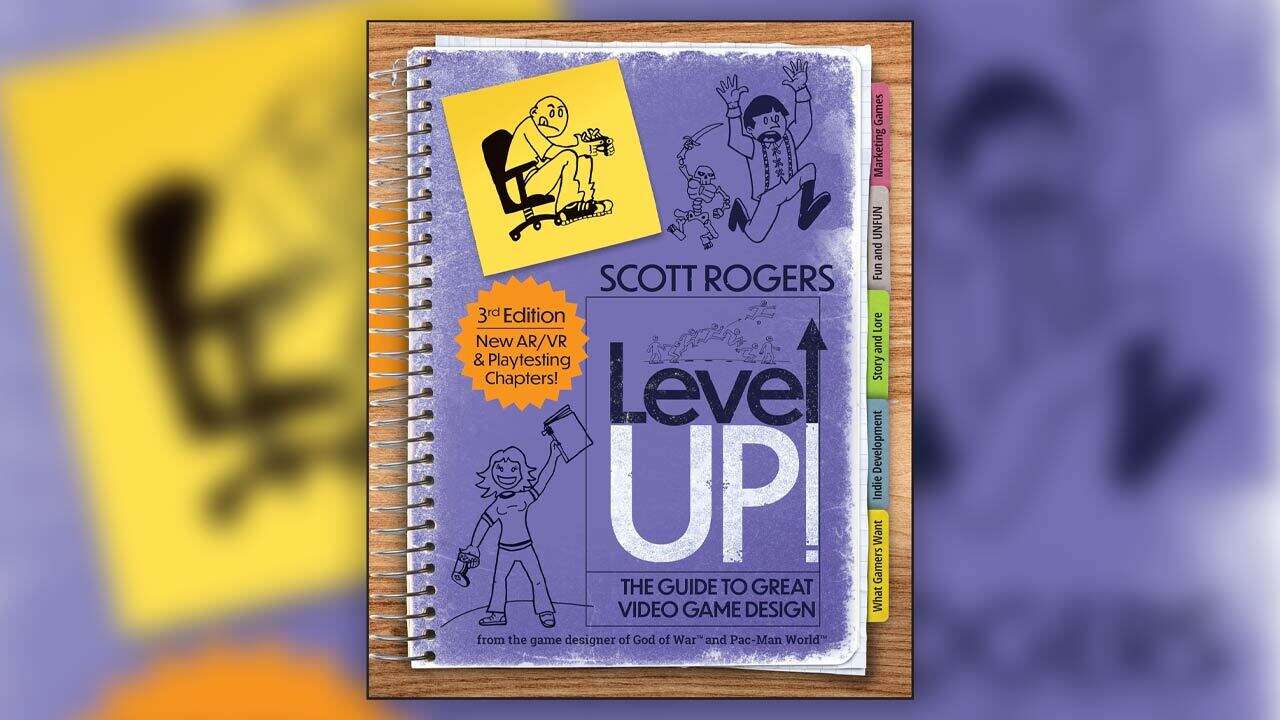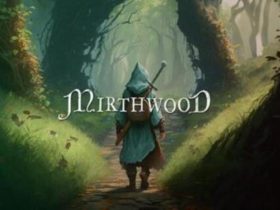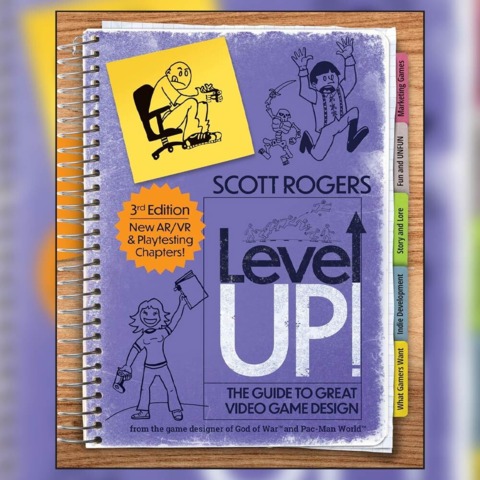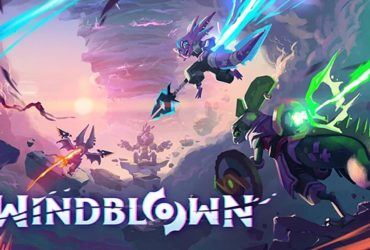If you’ve ever dreamed of making a game, you’ll want to check out Level Up: The Guide to Great Video Game Design. Written by veteran game developer Scott Rogers, the book is lauded as one of the best resources for learning game design, covering everything from starting your very first project to project management and monetization. A new edition of the book is launching soon on December 5 that will expand on the original with new chapters and insights from Rogers, and preorders are available now.
$50 | Releases December 5
According to the book’s description, readers will learn how to write story and lore, build levels, create design documents, pitch your game to publishers, and more. These lessons have “been written with all levels of game designers in mind,” and features over 400 drawings to help visualize common game design concepts. This new edition expands the book with two additional chapters and a new chili recipe written by Rogers. Level Up! has been a best-seller for years, and considering the decade-long gap between printings, you probably don’t want to dawdle on grabbing this new edition in case it sells out.
If you’re looking to build up a library of game development books, there are several other titles worth grabbing, many of which are on sale right now. The Art of Game Design: A Book of Lenses by Jesse Schell takes a novel approach by presenting you with over 100 sets of questions for viewing a game’s design, and Theory of Fun for Game Design by Raph Koster takes you deep into the influences that underlie modern video game design. Metal Gear Solid and Death Stranding legend Hideo Kojima also wrote a book called The Creative Gene that one examines how movies and stories influenced his work across the decades.
Some other books worth looking at are Significant Zero: Heroes, Villains, and the Fight for Art and Soul in Video Games by Spec Ops: The Line writer Walt Williams and Blood, Sweat, and Pixels by Jason Schrier. While these aren’t about game design, they are invaluable for gaining an understanding into the turbulent video game industry. Wonderbook: The Illustrated Guide to Creating Imaginative Fiction is also worth considering–even if it is geared primarily at budding sci-fi and fantasy writers–as it’s an accessible guide to building worlds within works of fiction.












Leave a Reply